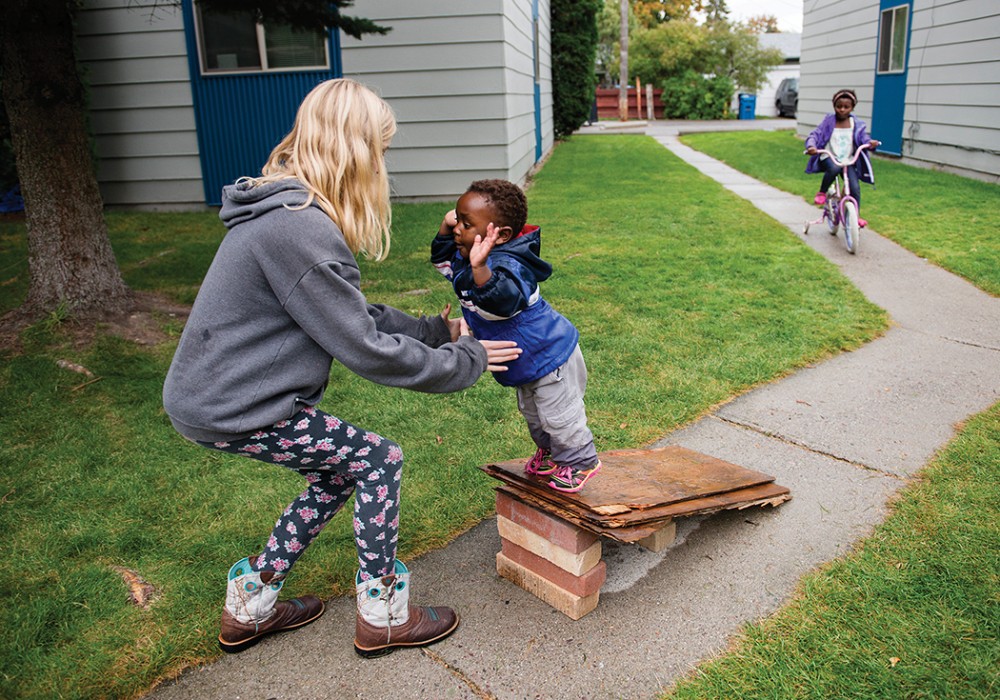A soft landing in Montana

“When I arrived in Missoula, I felt very cold,” said Joel Makeci Ebuela, a refugee from the Democratic Republic of the Congo. Before coming to Montana in September, Ebuela had lived in a refugee camp in Tanzania since he was 11. Ebuela, his wife, Bikyeombe Abwe, and their five children are now settling into a new life in the United States.
Their journey to Missoula began more than a year ago when Ebuela and Abwe applied for resettlement. In August 2016 the International Office of Migration, which works with governmental and nongovernmental partners, sent a bus into the red dust of the Nyarugusu refugee camp to pick up the Ebuela family. The couple piled their children into the bus, not knowing where they were going. “You haven’t any choices,” said Ebuela. When I asked him at what point he knew he was coming to Missoula, he said it was when he got off the plane. “I got off the plane and asked, ‘Where am I?’” The day they arrived in Missoula it was damp and rainy. “They told me that after a month or two months, there will be snow! . . . I have never seen snow. I will see it.”
The Congolese refugees have arrived at a time when the situation of refugees is politically precarious. In August, President Obama pledged before the United Nations General Assembly to increase the number of refugees admitted to the United States—but that pledge was met with domestic rancor. An anti-immigration and antirefugee wave fueled the presidential campaign of Donald Trump, and Trump’s election has cast uncertainty over refugee resettlement programs.





